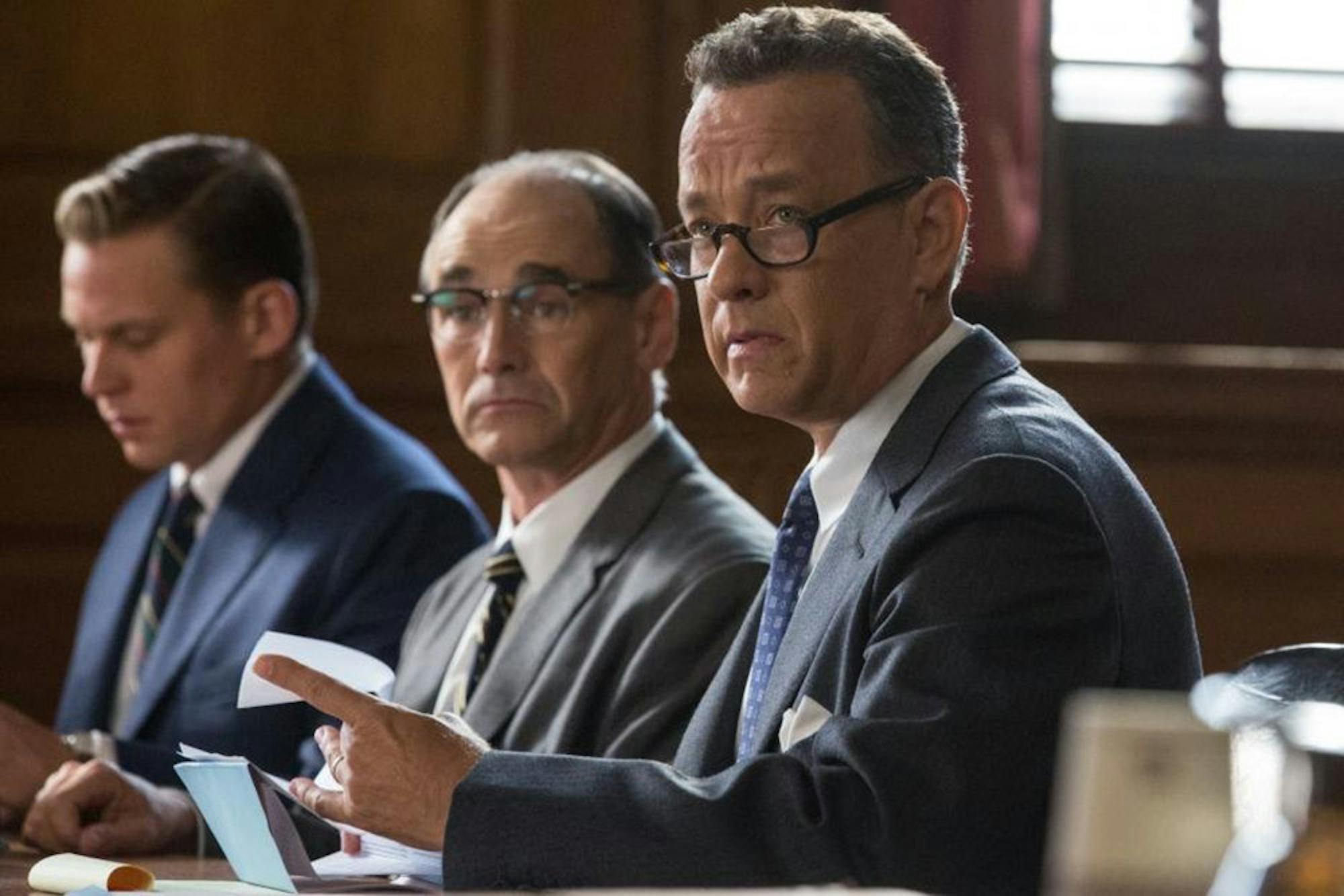“Bridge of Spies," directed by Steven Spielberg and starring Tom Hanks, was released on Oct. 16. The film takes its name from the Glienicke Bridge, which stretches across Germany’s Havel River, linking the territory that was controlled by the Eastern Bloc and the Western powers during the Cold War. At that time, the bridge was used for prisoner exchanges, and because of the high number of captured spies that were ferried across it, the media dubbed it the “Bridge of Spies.”
As the name of the film suggests, “Bridge of Spies” is a Cold War drama about one of these spy exchanges. The film is based on the true story of the role of New York lawyer James B. Donovan (Hanks) in two high-profile Cold War episodes: the legal defense of Soviet spy Rudolf Ivanovich Abel (Mark Rylance) and the subsequent exchange of Abel for U2 pilot Francis Gary Powers and (on Donovan’s own initiative) American student Frederic Pryor.
Despite ostensibly dealing with global superpower relations, “Bridge of Spies” is built around a collection of outstanding individual performances rather than any driving drama derived from the mechanics of geopolitics. Hanks shines as Donovan, largely due to his ability to bring an earnest believability to the character’s legalistic idealism. In the hands of a lesser actor, Donovan’s sermons on the U.S. Constitution and his spirited, ideologically-motivated defense of Abel could have come across as a mouthpiece for the writers’ idealized vision of what’s best about America. Instead, thanks to Hanks, Donovan’s speeches actually feel like things a real person, rather than a dramatic contrivance on a soap-box, might actually say.
Rylance is also fantastic as Abel, a Soviet spy. The wry witticisms he delivers in a straight-faced, deadpan manner are perhaps the highlight of the film, but unfortunately, they don’t occur as often as one might like. His trademark inquiry of “would it help?” provides comic relief at all the right moments, as well as a welcome insight into the character’s nonchalant attitude. The rapport that Rylance andHanks’ characters develop over the course of the film is also a joy to watch but is sadly not given as much screen time as it deserves.
The supporting cast also delivers a number of stellar performances. Scott Shepherd, as CIA agent Hoffman, is convincingly exasperated by Donovan’s principles and antics, while Amy Ryan’s rendition of Donovan’s long-suffering wife, Mary McKenna Donovan, is also notable.
Given the events it chronicles, “Bridge of Spies” is a period drama by default and, fortunately, the film delivers a gorgeous rendering of the late 1950s and early 1960s. All of the main characters are extremely well-dressed, sporting outfits and accessories endowed with the mid-century swank that “Mad Men” (2007-2015) so famously catapulted into contemporary consciousness. The streets of New York are also lined with the mostly black cars of the era, and bleak exterior shots of East Berlin depict the city as a starving, freezing ruin. Cold War military hardware is also on display, treating audiences to a dissection of the U2 spy plane’s camera system. Because of this meticulous attention to detail in all aspects of its visual presentation, “Bridge of Spies” manages to firmly inhabit the period in which it is set.
Though by and large a cinematic achievement, “Bridge of Spies” is not without its flaws. Courtroom scenes showing Donovan’s defense of Abel are somewhat thin on the ground, as the film focuses instead on the difficulties he faced outside of the courtroom, such as a drive-by shooting that targeted his home. It would have been interesting to see more legal sparring between Donovan and the prosecution as he struggled to defend his client in a profoundly anti-communist environment.
The ending of “Bridge of Spies” verges on cliché: one of the film’s final scenes shows Donovan returning home from Germany after successfully negotiating the release of Powers and Pryor. Exhausted, Donovan walks upstairs after greeting his wife and children and immediately falls asleep in his own bed — something he has talked about doing at length throughout the film. A TV newscaster then conveniently announces the freeing of Powers and Pryor, as well as Donovan’s role in securing their release, to his unsuspecting family, who believed he had been on a fishing trip. Upon hearing the news, Donovan’s wife proceeds upstairs and gazes at him with adoring awe while he sleeps. Meanwhile, the soundtrack swells emotionally in the background.
These shortcomings are minor, however, and do little to hinder the overall brilliant execution of “Bridge of Spies.” The film comes off as a well-realized drama, and benefits from superb performances across its cast. Hearing Abel ask “would it help?” at just the right time is worth the price of admission alone.
Superb acting elevates 'Bridge of Spies'

Tom Hanks stars as lawyer James B. Donovan in Cold War drama “Bridge of Spies.”
Summary
Despite a few minor shortcomings, "Bridge of Spies" is a well constructed Cold War drama well worth your time.
4.5 Stars





